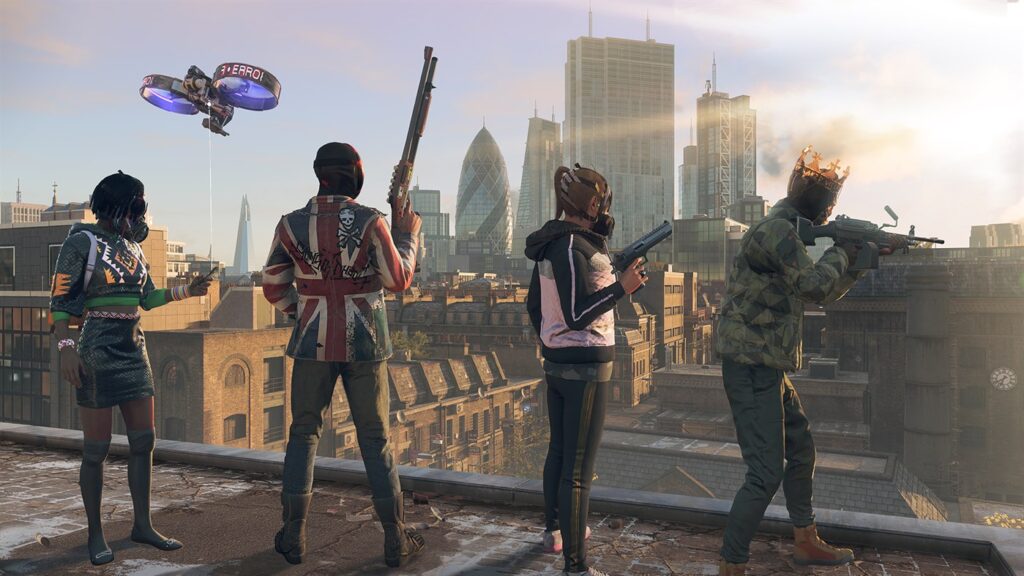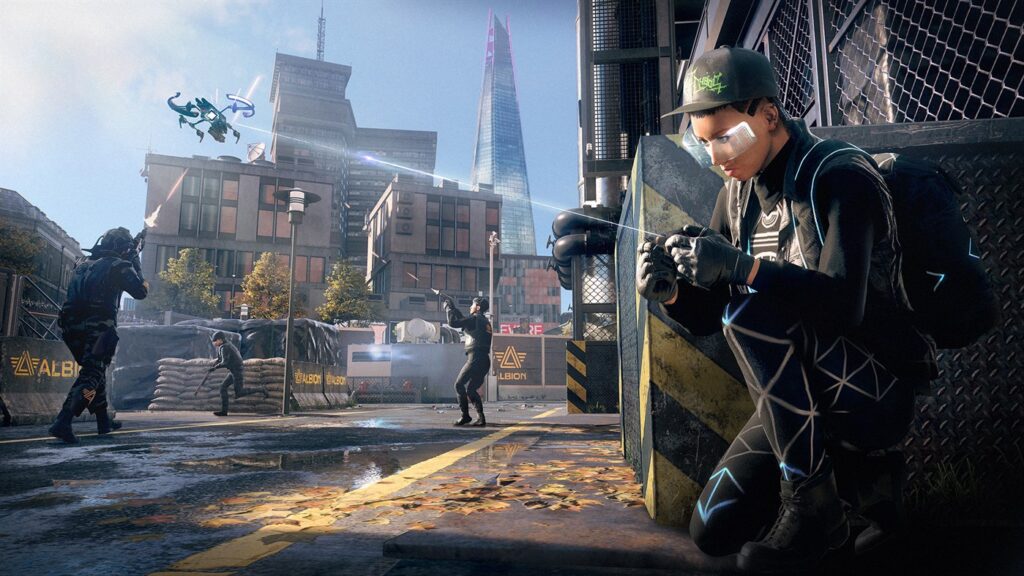
Sometimes newer doesn’t always equal better.
“Watch Dogs: Legion” was developed by Ubisoft Toronto and launched Oct. 29 for PC, Xbox One, and PS4, Nov. 10 for Xbox Series X and Nov. 12 for PS5.
“Legion” is set in an ambiguous not-too-distant future London where automation and technology have become even more prominent than it is in the present.
Surveillance, delivery and police drones casually hover above the streets; self-driving cars make up a majority of traffic and the British Pound has been replaced entirely by cryptocurrency.
In the midst of it all, the vigilante hacker group DedSec has expanded from Chicago and San Fransisco to form the splinter group, DedSec LDN.
The first two games in the series saw the protagonists fight against the Blume Corporation’s newly implemented ctOS infrastructure control systems across their respective cities.
Unfortunately for DedSec LDN, they cannot fight against the automation and surveillance of ctOS as it has been present in the city for around a decade or so.
Rather, DedSec rebels against the newly instated police state under control by Albion PMC, a private security organization that has replaced the London Metropolitan Police Service after DedSec was framed for a terrorist bombing attack by rival hacking group Zero Day.
The gameplay of “Watch Dogs: Legion” remains almost the same as it was in “Watch Dogs 2,” with the game taking place in an open-world sandbox environment.
Players can hijack different technology around the city to activate road barricades, peer through security cameras, control drones and much more.
It is hard to explain the gameplay style of “Legion” without simply reciting the gameplay of “Watch Dogs 2.” Almost nothing has changed aside from the implementation of a few different vehicle and weapon types.

Gadgets such as the spider-bot and drone replace the RC Jumper and Quadcopter from “WD2,” respectively.
But even these returning gadgets highlight one of the game’s best and worst features.
The big gimmick for “Legion” was the idea that any NPC the player encounters can be recruited into DedSec and become playable. With each NPC, they are assigned randomly generated qualities and equipment they can access.
Because of the randomly generated equipment DedSec members can have, only some members can have access to personal drones that can be used without having to find and hijack a public drone.
This means if players are on a mission where a drone may make it easier, they better hope their DedSec operative is one that has the drone gadget, otherwise they’re going to have to hunt one down because operatives cannot always swap in the middle of a mission to grant access to a drone.
Altogether, this issue rings true for many different gadgets, abilities, weapons and cars that come with different recruits.
Along with this, some recruits hold negative abilities ranging from gambling addictions that cause them to spend your money to being prone to spontaneous death.
Another downside of the recruitable NPC gimmick is they are all randomly generated, meaning there is a pool of assets the game pulls from to randomly cobble together all these characters and, therefore, the amount of assets and combinations is finite.
Characters can often be found next to characters with similar models, voices and traits. While this is not always the case, the random aspect begins to lose its luster very quickly because of the frequency of repetition.
With the randomly generated characters, they are not able to have fully fleshed-out personalities as unique characters, but they simply fall into a few different archetypes of people found throughout London.
This is a glaring issue when coming off of “Watch Dogs 2” where the characters were detailed, enjoyable individuals with unique personalities that made them play well off each other.
Once players find a character who has suitable traits and gadgets, they are likely to simply stick to one operative throughout the rest of the game as the recruitment process is nothing more than completing repetitive side-missions.
The only character who truly stands out among the others is DedSec’s AI companion, Bagley, who briefs players on missions and gives guidance and quips along the way.
There is nothing that sets “Watch Dogs: Legion” apart from its most recent predecessor. Resorting to comparison is often regarded as one of the lowest forms of criticism, but in this instance, it cannot be helped.
While “Legion” is a decent game on its own, it is more likely players familiar with the series, myself included, will consistently be fighting the urge to simply pick up and play “Watch Dogs 2” instead.

